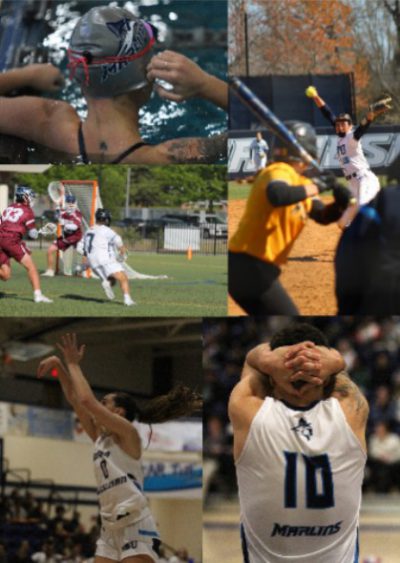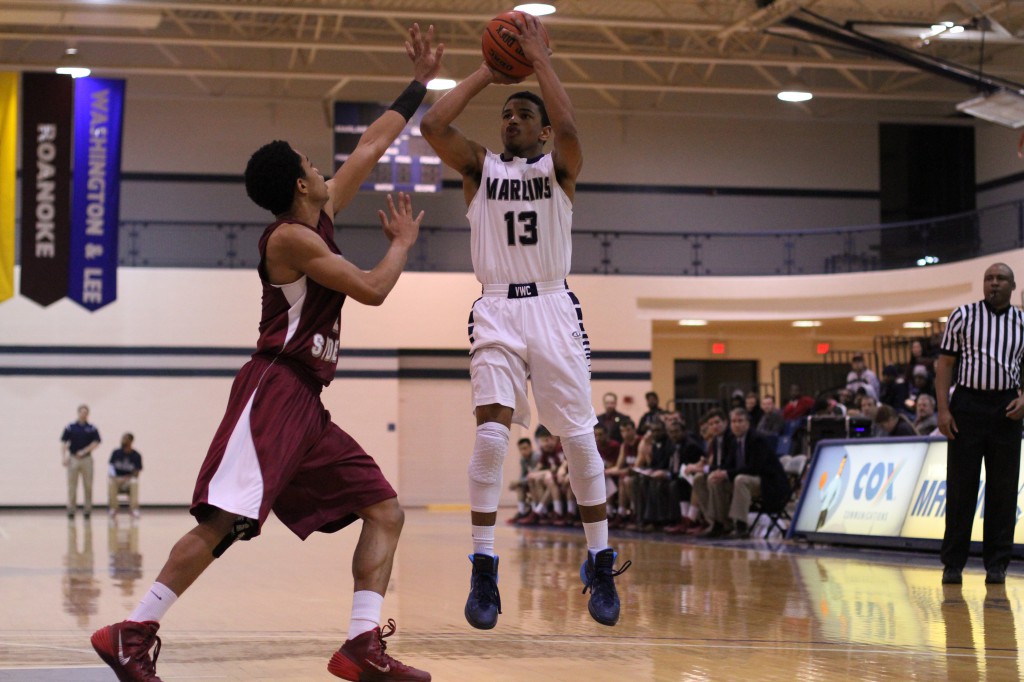Collage of senior athletes from the 2024-2025 sports seasons.
McKenna Howenstein, Emilie Dajc & Eli Casey|Marlin Chronicle
Seniors weigh in on the process of moving on from their athletic career.
As another school year comes to a close, senior athletes across the country are walking off the field, court and track for the last time. For many, it is the end of a chapter filled with wins, losses, long practices and team memories.
Senior student-athletes juggle full academic schedules with intense team commitments, part-time jobs, community involvement and internships.
According to NCAA data, DIII athletes typically spend 20-30 hours per week on their sport during their season. These athletes play truly based on passion for the sport since there are no athletic scholarships at the DIII level.
Valuable memories from their sports will stay in an athlete’s mind throughout the rest of their life. “My favorite team memory was my walk-off home run against Ferrum my junior year. Walk-offs are always fun when you’re on the winning side of it. Seeing the team pile out of the dugout celebrating, I will forever remember that moment,” senior baseball player Nick Sylvester said.
Graduating student-athletes reflect on how being a part of their team here has added to their college life. “Being on a team gives you your own tight-knit community, lifelong friendships and something to keep your head up during off days,” senior swimmer Lauren Hendricks said.
One of the unwritten jobs of a senior athlete is to give advice to the younger teammates and the future players.
A piece of advice that Sylvester said he would give is to “embrace the memories you make with your team. Some of the guys on your team will be in your life forever.” Additionally, Nick offered the advice to “take advantage of every opportunity you are given and leave it all out on the field.”
A senior’s last moment on the field, court, track or pool that they played at for the majority of their college career can be emotional, not only because it can feel like they are leaving their second home but they may also be leaving their sport behind.
By Caston Christman
cbchristman@vwu.edu


